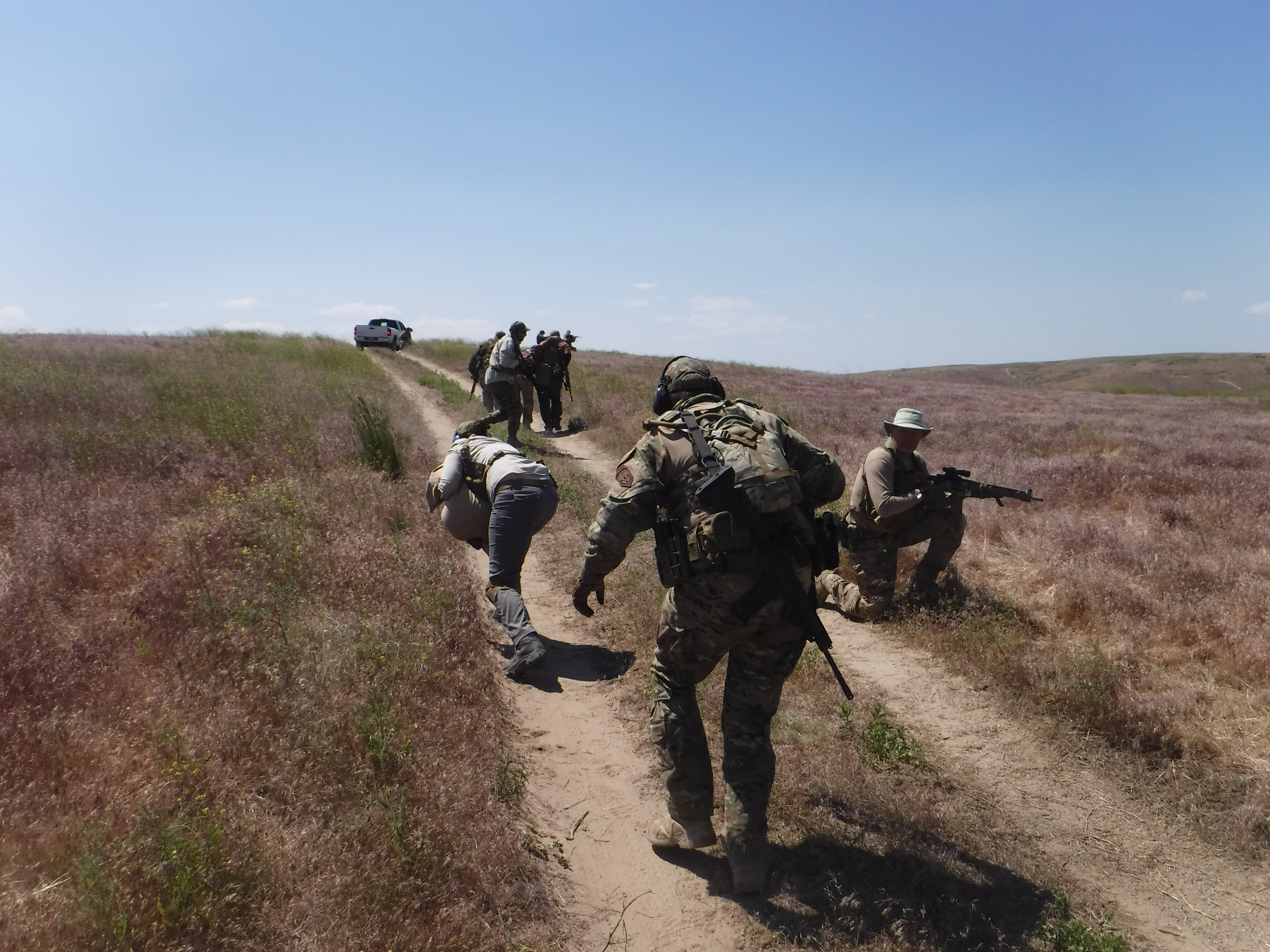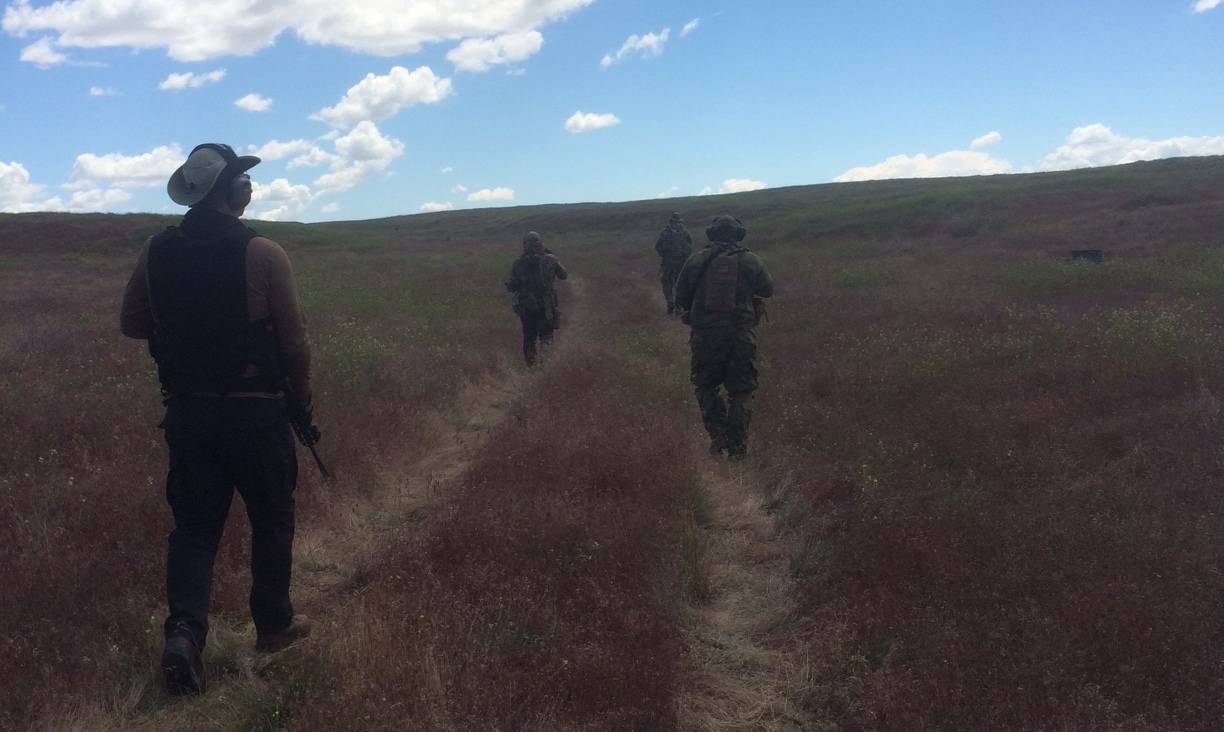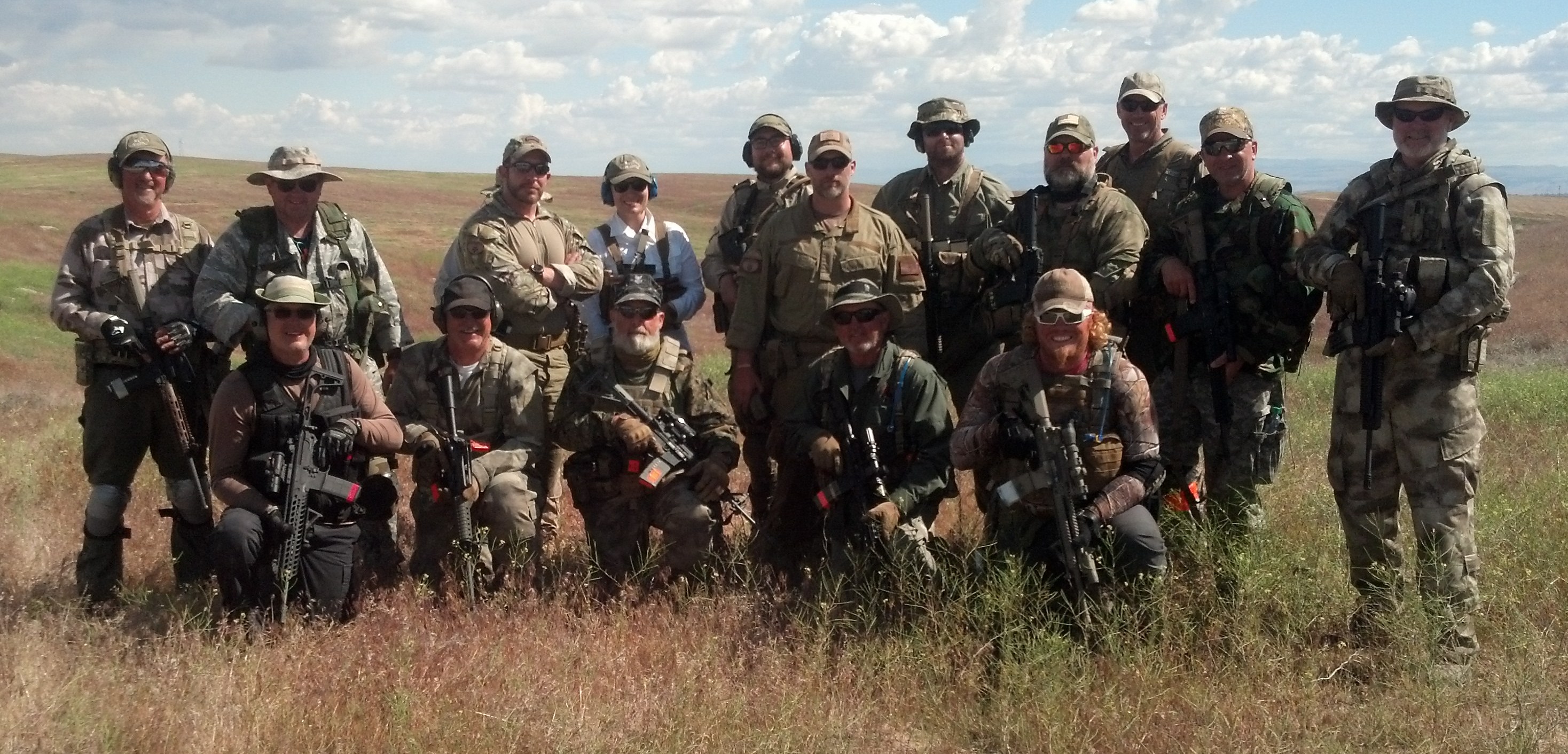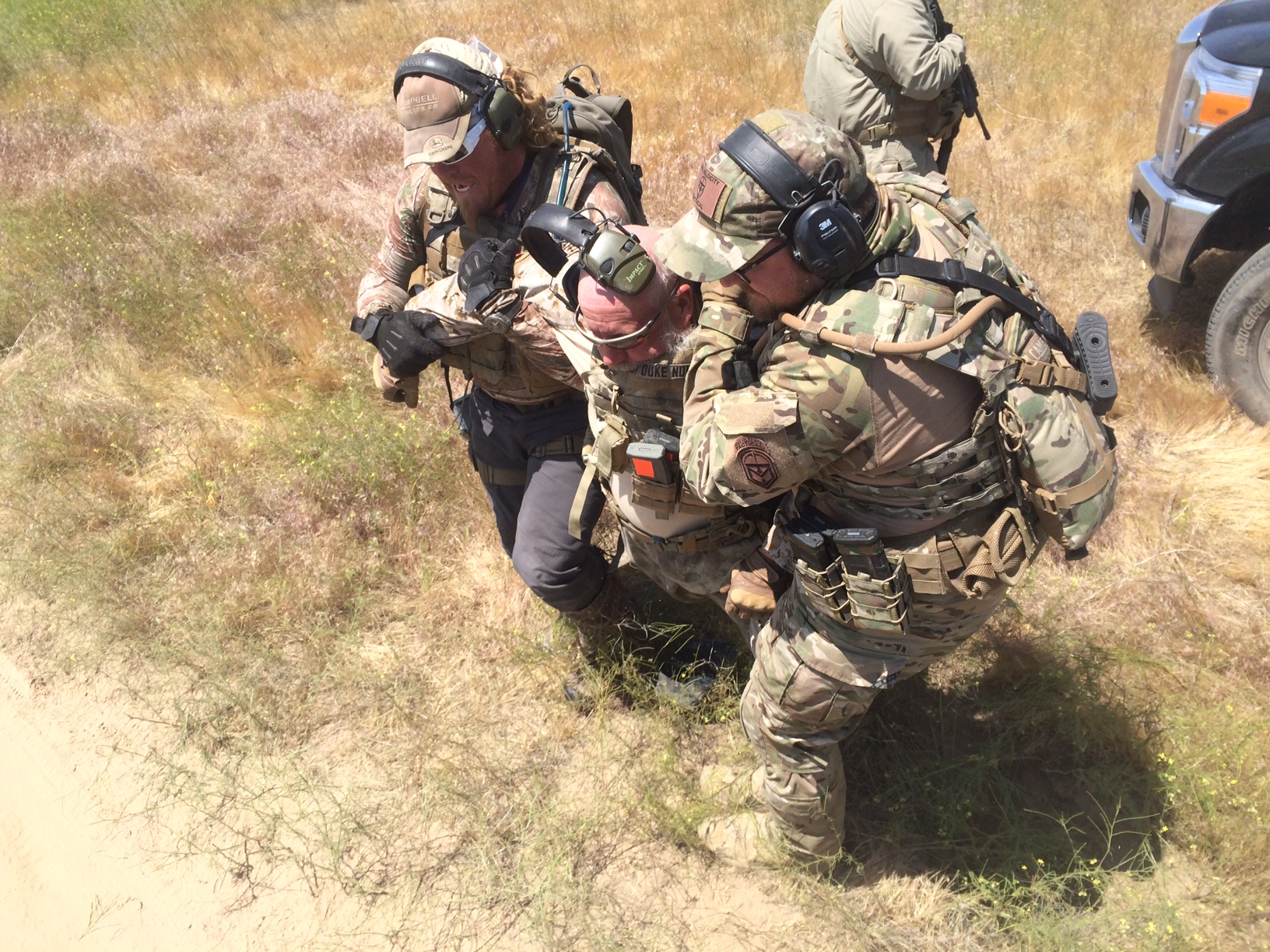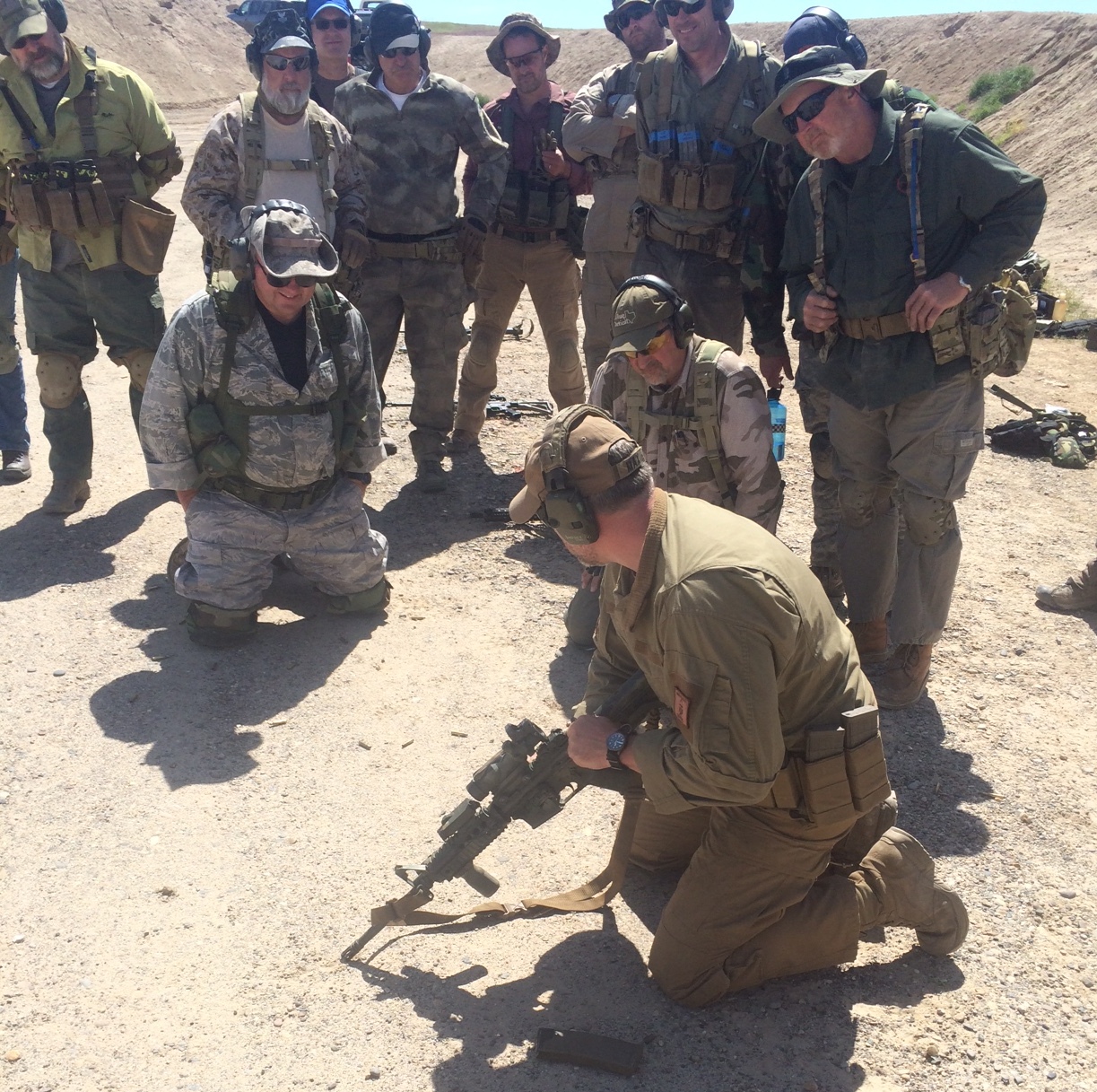Guest Post: ‘So Why Would You Do Tactical Training?’ by David
David is a multi-class MVT Alumni. He is the organizer of last year’s Idaho Classes, and of the Idaho classes coming up in May. These classes are open enrollment and there is currently space available (info at bottom).
“So why do you do this tactical training stuff?” is a question I get asked from time to time. Sadly, the answer does not lend itself to a sentence or two. Let me lay out my premises and then some conclusions.
Assumed Role: In our family I am (literally) the last man standing of my generation. Since I am no longer immersed in pursuing ‘the rat race,’ I have time to contemplate the long term future and security of our children and grandchildren. Our kids are busy with their careers and families. Put differently, while I fervently hope bad times will not come knocking, I am the one most inclined to contemplate and plan for those ‘unlikely but very bad’ scenarios.
Historical Perspective: I saw an article the other day which claimed 100 million people have been killed by (mostly their own) communist governments in the last century or so. It is a big number, but it occurred to me the number did not include Germans killing Jews/Poles/Russians/Brits/Americans/etc., Hutu killing Tutsis, Japanese killing Chinese, Turks killing Armenians, Sunni jihadists (ISUS, etc.) killing Kurds/Christians/Shia Muslims (etc.), and the list goes on and on… My inescapable conclusion is we are a violent species and we do not need much of an excuse to kill one another. Our motivations can be religious, racial, tribal, political or just competition for scarce resources. The fact that we in the good old US of A have not fought a major war on our own soil in 150 years or participated in home grown genocide in almost as long is a historical anomaly. If you believe the good times are just going to keep on coming because (pick your reason), you should stop reading and go back to doing whatever pleases you.
Vulnerability of our Society: We live in the most prosperous society our planet has ever known. So successful have our farmers and ranchers become that fewer than 10% of us have any experience in providing our own food. Our nation has become totally dependent upon cheap and constant electricity. Think about it: how many Americans have even experienced finding something to drink other than by turning on a tap or stopping at a store? If the power went out for as short a time as couple of weeks, what percentage of us would still have safe water to drink? What happens when the septic/sewer systems stop working? If our power grid goes down, how long do you think there will be fuel available to put in our cars or the trucks which bring groceries to our stores? How will our farmers be able to harvest their crops? Regardless of whether the grid goes down due to an electromagnetic pulse, a coronal mass ejection or a devastating hacking attack of our power structure, bad things would surely happen in very short order.
If (when?) the shit hits the fan (SHTF): What do you think folks in the cities (or suburbia) who have always had easy access to water and food will do after the water is off and the shelves have been empty for a couple of weeks? We wiser sorts may sit around the campfire, sing Kumbaya and share our biscuits with the neighbors (who did not think to set aside much or any food), but methinks that would not last very long. Ponder Hurricane Katrina; see the paragraphs above. When the SHTF, what lengths do you think people who are starving will be willing to go to? Once the cops and the rest of ‘the government’ have decided providing for their own families is their highest priority, who will defend your family and neighbors? Losing our grid could happen literally in an instant, with little or no warning. It is a military axiom that if you train for the worst case scenario, less dire circumstances will be easier to handle. In my mind, losing our power grid for a month or longer is a worst case scenario.
Nature of Armed Conflict: As best we can determine, combat among humans has been a ‘team sport’ since before our ancestors climbed down from the trees. Once in a great while an individual may accomplish heroic feats against multiple opponents (Sergeant Alvin York comes to mind), but not even Alvin strolled into battle by himself. Leaving Hollywood and fantasy fiction aside, only on the rarest of occasions does an individual, no matter how skilled, prevail against multiple opponents for any length of time. On the other hand history provides many examples of small groups of skilled and motivated warriors defeating more numerous foes. I once harbored a ‘front porch sniper’ fantasy where I assumed my skill with small arms would allow me to defend my family if things turned to shit. It was a comforting fantasy, but little more.
Knowing and becoming proficient in the fundamentals: If you think you can gather a ‘pickup team’ and prevail in armed combat at the drop of the hat, you have been watching too much television. Think about this sports analogy: you and your family/friends suddenly find out you have to play basketball (or football, or whatever) against guys who have been practicing. The game starts when they decide, not when you think you are ready. To make it more meaningful, you or your family/friends will be wounded or killed if you screw anything up… If you knew this might happen, wouldn’t you be inclined to at least rehearse a few plays ahead of time, before your family’s survival is on the line? Another point to ponder: even among highly trained and experienced military units, ‘blue on blue’ fatalities happen with disturbing regularity. What do you think the likelihood is of friendly fire mistakes happening among untrained and scared civilians?
Recap of Premises: 1) If I don’t worry about what could happen to my family in SHTF scenarios, little or insufficient preparation will happen; 2) Our species is violent and xenophobic; 3) Our country’s economy/infrastructure is fragile and could melt down without warning; 4) Our veneer of civilization is thin; 5) Combat is a team endeavor; 6) Trying to learn combat team skills while in combat is guaranteed to get people on our team killed. If you accept the premises above, they lead inexorably to conclusions most of us would rather not reach.
First Conclusion: If I want my family and friends/neighbors to have a decent chance of surviving SHTF, they need weapons proficiency and as good an ability at ‘combat team tactics’ as they can achieve. Training before SHTF allows for learning from mistakes, without any bleeding or dying. Ideally our team will have participated in live fire team tactics training and will have achieved that oh-so-important edge of ‘battle inoculation,’ which is so expensive when achieved in actual combat.
Second Conclusion: ‘The balloon goes up’ when the balloon goes up. If the bad guys show up when only the old folk, women and grandkids are home, that is who has to fight. While the women in my family cannot move as far or as fast with a 50 pound load as the guys, they are more than capable of performing fundamental defensive combat tactics. I cannot ruck as fast nor as far as I could 20 years ago, and I guarantee that 20 years from now I will not be able to ruck as far or as fast as I can now.
Foundational Skills: My daughters had good firearms fundamentals training before they were in high school. But being able to safely handle a firearm on a conventional range is only a first step. Indeed, some of the ‘never go forward of the firing line until every weapon is safe’ programming needs to be undone for tactical proficiency to exist.
Learning how to manage a battle rifle under dynamic conditions is a different set of skills which cannot be gained at local ranges or in competition. I have had friends and neighbors ask why I cannot just teach them these fundamental skills. The answer is I cannot give them the intensity of training nor the number of repetitions needed. Formal (intense) training of 2 to 4 days with professional instructors instills skills which just are not obtainable in casual sessions. The best professionals are able to recognize impending mistakes before they happen. We need a critical number of repetitions before the lessons settle into our subconscious where they are automatic under stress. Being able to ‘ring steel’ at 600 yards is different than developing the constant muzzle awareness and techniques necessary to move tactically as part of a team.
Basic ‘combat lifesaver’ skills are important, even for those who are unwilling or unable to take the training necessary to function effectively as a combatant. This includes the grandkids. I fully expect my grandson’s first grade show and tell will be something like: “Today I am going to demonstrate how to apply a tourniquet on myself with only one hand.” Shortly thereafter he will undoubtedly be offering to demonstrate the application of HALO chest seals on the cuter girls, but we will deal with that when it happens…
Third Conclusion: Everyone in my inner circle who is capable and willing to train should be afforded the opportunity. This is part of ‘my job’ that I have assumed as a family elder. I consider it a gift to the following generations. Besides, at some point I hope to be that cranky old fart sitting in the rocker on the front porch, with a rifle close at hand, of course. But until then I intend to walk my talk and lead from the front.
I am the type of guy who puts on his seatbelt every time I get in a car, not because the government tells me to or because I think I am likely to get into an accident; I do it because I may, however unlikely, get into an accident. Over the years I have trained with the best regarded instructors in the business. This spring I and my family will be training with Max Velocity Tactical when he brings his training to Idaho. Life is too precious and too short to train with anyone but the best.

